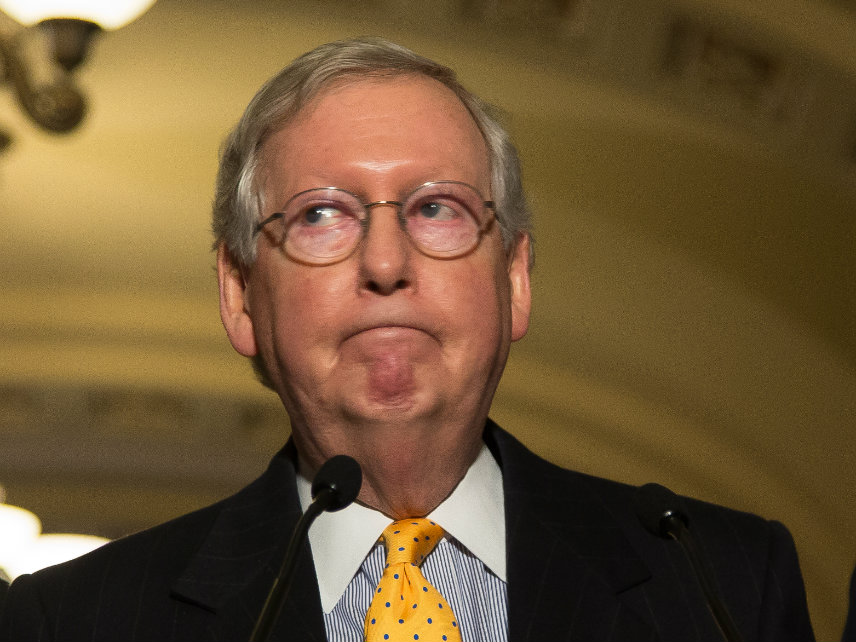Six Republicans Who Voted for Obamacare Repeal in 2015 Sank the 'Clean Repeal' Bill Today
Another day, another defeat for the Senate's health care effort

In 2015, when presented with a bill that would have repealed much of Obamacare's taxes and regulations, Senate Republicans were eager to send a political message. Though the bill would be vetoed by then-President Barack Obama, 52 Republicans voted "aye."
With 48 of those 52 senators still in office, the Senate on Wednesday could muster only 45 votes in favor of a "clean repeal" of Obamacare. Six senators who voted for the 2015 bill voted against the repeal effort.
They are Lamar Alexander, R-Tenn., Shelley Moore Capito, R-W.Va., Dean Heller, R-Nev., John McCain, R-Ariz., Lisa Murkowski R-Alaska, and Rob Portman, R-Ohio.
After a comprehensive repeal-and-replace bill failed Tuesday night, senators voted Wednesday on a proposal to scrap most of Obamacare in two years, giving Congress a chance to work-up some sort of replacement. The so-called "repeal-and-delay," which had been pushed by conservative and libertarian members of the Senate, including Sen. Rand Paul, R-Kentucky, met the same fate.
With two defeats in as many days, Senate Republicans are running out of time to pass anything that could be considered a victory in their years-long quest to repeal Obamacare. Under the rules of the reconciliation process, the Senate can only debate the health care bill for 20 hours before embarking on a so-called vote-a-rama (probably sometime tomorrow) and then taking a final vote Friday on whatever bill emerges from that process.
It's a total mess.
The last ditch effort will likely focus on what's become known as the "skinny repeal" option. There's no actual language for the amendment, but Politico and other outlets are reporting the proposal would include a repeal of Obamacare's individual and employer mandates and a repeal of the medical devices tax.
If Republicans can get a skinny repeal bill out of the Senate, the two chambers could go to a conference committee to iron out the differences and, perhaps, find a version of the two bills both chambers could pass.
There is also a chance the House will accept that measure and pass it just to make the whole issue go away. But Rep. Mark Meadows, R-North Carolina, the head of the House's Freedom Caucus, says the "skinny repeal" bill will not pass the House. Conservatives in both chambers may have a hard time voting for a bill that does not touch Obamacare's Medicaid expansion. Policy considerations, though, have taken a backseat to simple mathematics in the Senate.
"Whatever gets to 50," Sen. John Thune, R-South Dakota, told Politico.
The least common denominator approach is really the only choice left, and the clock is ticking.
"I've always said I will vote for any permutation of repeal," Paul told Politico before the vote on full repeal failed Wednesday. "Obviously I want as much as I can get but I'll vote for whatever the consensus can be. It's what I've been saying for months: Start on what you can agree on."
Instead, the health care debate will end with whatever 50 Republican senators can agree on.


Show Comments (135)